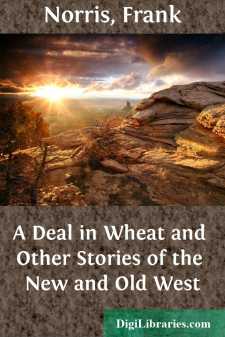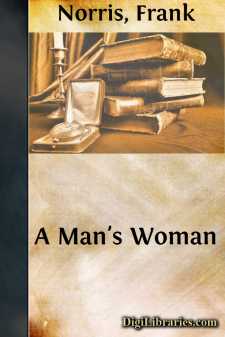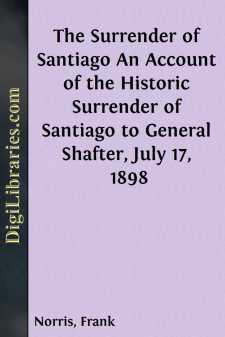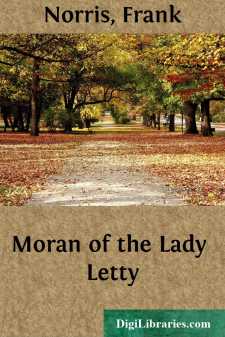Categories
- Antiques & Collectibles 13
- Architecture 36
- Art 48
- Bibles 22
- Biography & Autobiography 813
- Body, Mind & Spirit 142
- Business & Economics 28
- Children's Books 15
- Children's Fiction 12
- Computers 4
- Cooking 94
- Crafts & Hobbies 4
- Drama 346
- Education 46
- Family & Relationships 57
- Fiction 11828
- Games 19
- Gardening 17
- Health & Fitness 34
- History 1377
- House & Home 1
- Humor 147
- Juvenile Fiction 1873
- Juvenile Nonfiction 202
- Language Arts & Disciplines 88
- Law 16
- Literary Collections 686
- Literary Criticism 179
- Mathematics 13
- Medical 41
- Music 40
- Nature 179
- Non-Classifiable 1768
- Performing Arts 7
- Periodicals 1453
- Philosophy 64
- Photography 2
- Poetry 896
- Political Science 203
- Psychology 42
- Reference 154
- Religion 513
- Science 126
- Self-Help 84
- Social Science 81
- Sports & Recreation 34
- Study Aids 3
- Technology & Engineering 59
- Transportation 23
- Travel 463
- True Crime 29
A Deal in Wheat and Other Stories of the New and Old West
by: Frank Norris
Description:
Excerpt
A DEAL IN WHEAT
I. THE BEAR—WHEAT AT SIXTY-TWO
As Sam Lewiston backed the horse into the shafts of his backboard and began hitching the tugs to the whiffletree, his wife came out from the kitchen door of the house and drew near, and stood for some time at the horse's head, her arms folded and her apron rolled around them. For a long moment neither spoke. They had talked over the situation so long and so comprehensively the night before that there seemed to be nothing more to say.
The time was late in the summer, the place a ranch in southwestern Kansas, and Lewiston and his wife were two of a vast population of farmers, wheat growers, who at that moment were passing through a crisis—a crisis that at any moment might culminate in tragedy. Wheat was down to sixty-six.
At length Emma Lewiston spoke.
"Well," she hazarded, looking vaguely out across the ranch toward the horizon, leagues distant; "well, Sam, there's always that offer of brother Joe's. We can quit—and go to Chicago—if the worst comes."
"And give up!" exclaimed Lewiston, running the lines through the torets.
"Leave the ranch! Give up! After all these years!"
His wife made no reply for the moment. Lewiston climbed into the buckboard and gathered up the lines. "Well, here goes for the last try, Emmie," he said. "Good-by, girl. Maybe things will look better in town to-day."
"Maybe," she said gravely. She kissed her husband good-by and stood for some time looking after the buckboard traveling toward the town in a moving pillar of dust.
"I don't know," she murmured at length; "I don't know just how we're going to make out."
When he reached town, Lewiston tied the horse to the iron railing in front of the Odd Fellows' Hall, the ground floor of which was occupied by the post-office, and went across the street and up the stairway of a building of brick and granite—quite the most pretentious structure of the town—and knocked at a door upon the first landing. The door was furnished with a pane of frosted glass, on which, in gold letters, was inscribed, "Bridges & Co., Grain Dealers."
Bridges himself, a middle-aged man who wore a velvet skull-cap and who was smoking a Pittsburg stogie, met the farmer at the counter and the two exchanged perfunctory greetings.
"Well," said Lewiston, tentatively, after awhile.
"Well, Lewiston," said the other, "I can't take that wheat of yours at any better than sixty-two."
"Sixty-two."
"It's the Chicago price that does it, Lewiston. Truslow is bearing the stuff for all he's worth. It's Truslow and the bear clique that stick the knife into us. The price broke again this morning. We've just got a wire."
"Good heavens," murmured Lewiston, looking vaguely from side to side. "That—that ruins me. I can't carry my grain any longer—what with storage charges and—and—Bridges, I don't see just how I'm going to make out. Sixty-two cents a bushel! Why, man, what with this and with that it's cost me nearly a dollar a bushel to raise that wheat, and now Truslow—"
He turned away abruptly with a quick gesture of infinite discouragement....










